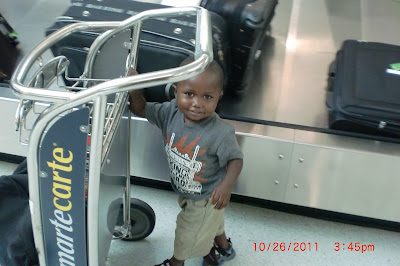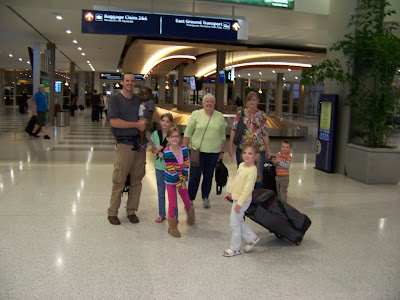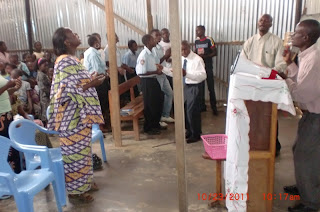-Before boarding our first plane in Congo Tuesday the water bottle in my pocket leaked and all down the back of my pants at the Congo
-To make things worse as I’m standing with my son in the hot sun we almost weren’t allowed to board the plane (you have to know Congo
-Once on board by an intervention of God’s grace, my boy wet through his diaper and got his pants wet and mine before the pilot turned off the fasten seat belt sign. So the front of my pants now are also wet with another fluid. And you guessed it, no change of clothes handy for either of us. Mind you this is before we’ve been in the air an hour! Oh well, it will dry, right?
-We weren’t allowed to request special seating on the connecting flight from Ethiopia to America till we arrived there, so when I got to the check-in area in the Ethiopian airport, I asked the airline agent if there was any way I as such a tall guy with an infant on my lap could get bulkhead seating (which airlines often reserve for lap tickets and people needing legroom). The agent curtly informed me he could not help me, the flight was completely full with no extra seats or extra legroom available. So I began a 17.5 hour flight with a squirmy fussy toddler on my lap, with the man next to me hogging the armrest, with my knees pressed uncomfortably into the seat in front of me, and with not even enough room to bring the tray table down to eat, and did I mention a squirmy fussy toddler on my lap who I can’t get to sleep and who is falling apart. After what seemed like an eternity, I checked my watch and saw there’s still 14 hours to go on that flight (and then another 10 hours before landing in Sac, so 24 hours to go)?? How did I make it through that flight? I’m still not sure, but I know I’m here (and I sure wished my sweet wife was there with me, especially on that longest leg of the journey). These were just the beginning of birth pangs, to use a biblical expression for tribulation ;)
-Bathroom humorous moment that I didn't find humorous at the time: As I was changing my son standing on the changing table facing me (he prefers to stand rather than sit down and at that point I’m not about to fight it) and as you moms might imagine, he started to pee all over the place, including on me! Airport bathrooms are only slightly bigger than a phone booth so when that happens there isn’t a lot of time or space to avoid the shower of blessing (these pants are definitely due for a wash!)
-Finally by sheer grace we arrive in America America
-In D.C. airport going through the long wait for immigration my son is losing it and the emergency lollipop I had been reserving for such a time as this that he is slurping on … in his fatigue he drops it, which potentially could have been one of the most dramatic and traumatic moments of his life. So I quickly pick it up off the floor and give it to him and he pops it back in just in time for the 3 second rule. Hey, he’s lived in Africa his whole life till now! Here he is happy to push these new cart things and to ride on one with Papa Didier
-In D.C. I also was apparently tired after only getting 2 hours sleep the prior night as I also accidentally left my son’s diaper bags with not only all of his baby care stuff but his toys, motorcars, snacks, and other fun stuff we needed for the last 10 hours and 2 flights of our day to get home! As our plane from D.C. to Long Beach
-When our long Long Beach layover is complete and very long trip is over as our last flight arrives in Sacramento
With my first 4 children, my wife Jaime went through much difficulty and labor before each baby was brought to home sweet home, so it's probably only fair that I had to go through some pangs and contractions and labor before we could bring our 5th baby to our home ... still I'm glad it's over and that we're home and recovering from the delivery. Our sweet home was awaiting all of us, with a warm shower and a bed that’s long enough for me, and a long sleep, and sweet unforgettable moments these first few days in our “home sweet home.” And my sweet son has found a sweet moto-car that you can put apple slices in and do other things with.
And, in case your're wondering, I threw my pants in the wash




































